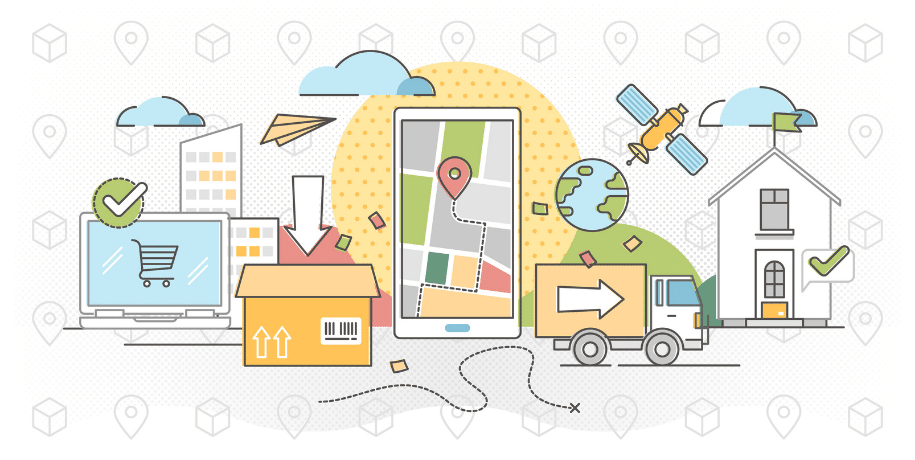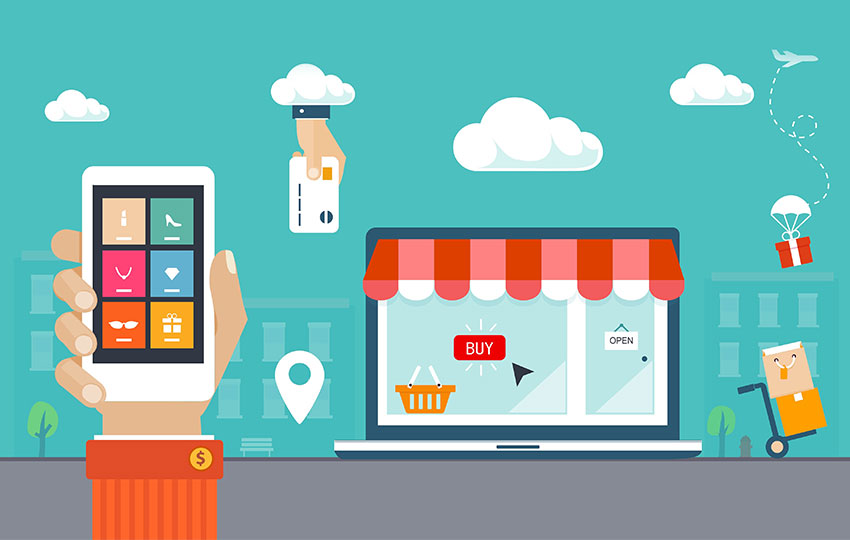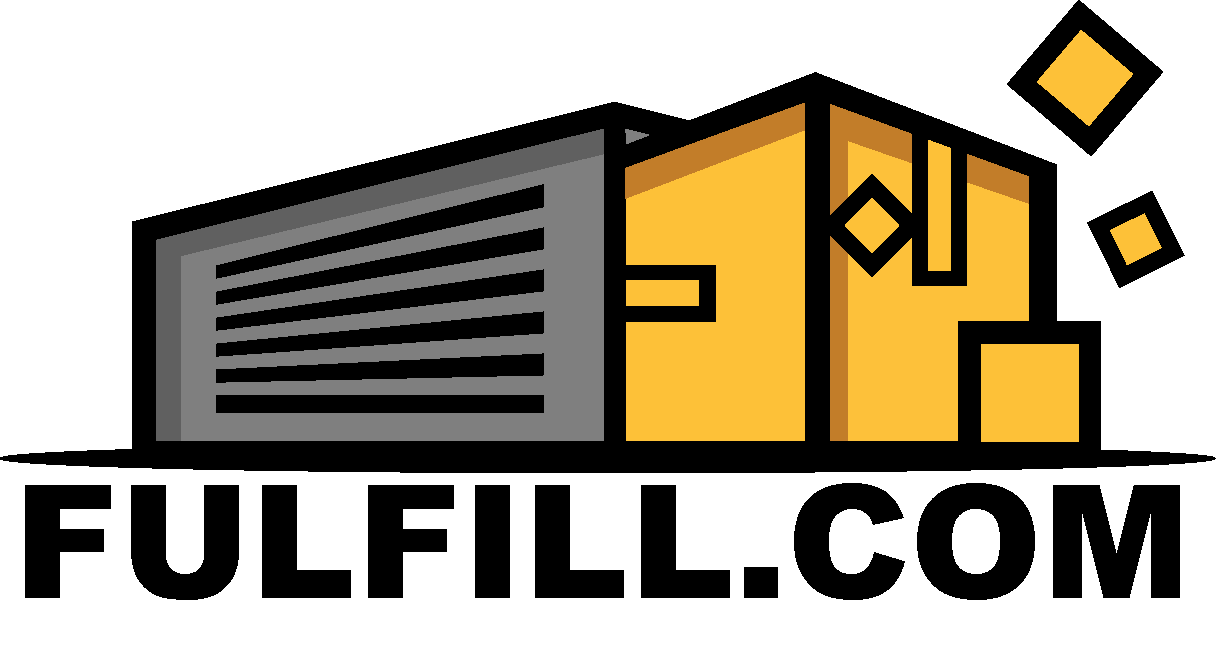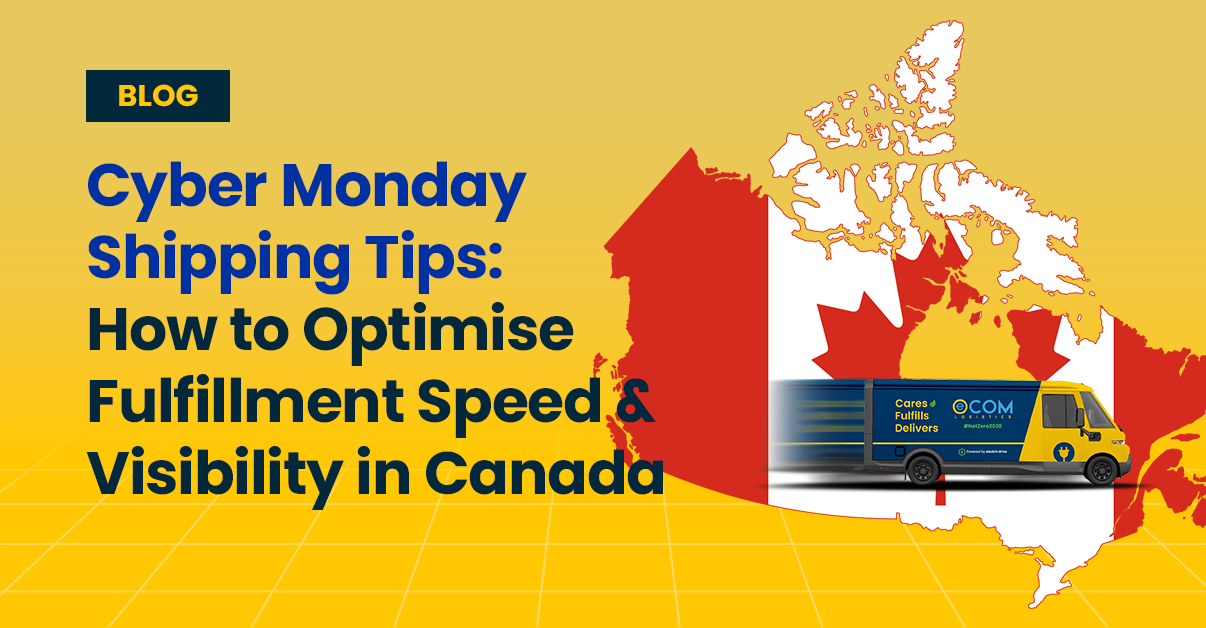Did you, as an e-commerce store owner, know that for online retailers, the average cost to fulfill an order is about 70% of the average order value?
Shocking, right? It’s a staggering figure that often goes unnoticed amidst the numerous tasks involved in running your online business. Especially when you’re busy managing several large and small functionalities that form just a part of the entire selling process.
Be that as it may, there are always alternatives that can help a business owner like yourself reduce such costs. In fact, you can even utilize them to maximize profits, boost your reputation, and expand your customer base alongside retaining the existing ones. One such alternative is known as an auxiliary service provider, otherwise known as fulfillment centers.
But what is e-commerce fulfillment and how can it help in customer service and retention? That is one of the many questions that we aim to answer in this article. So, let’s begin.
What is e-commerce fulfillment?
As an e-commerce business, you receive an influx of online orders for your products every day. Now comes the challenging part of fulfilling those orders promptly and accurately. This is where e-commerce fulfillment services come into play. In simple terms, e-commerce fulfillment services encompass all the processes involved in receiving, processing, packing, and shipping orders to customers.
From inventory management to order tracking and delivery, e-commerce fulfillment services are designed to ensure smooth and hassle-free order fulfillment. By partnering with a reliable fulfillment center or utilizing in-house fulfillment strategies, you can streamline your operations, reduce costs, and enhance customer satisfaction.
Why is e-commerce fulfillment an important tool for customer retention?
Statistics suggest that about 38% of customers abandon their carts if the expected delivery date for the order is over a week later. At the same time, 25% of online shoppers leave before check-out if unexpected shipping costs are found added to the final bill. Additionally, with one-day and two-day shipping offered by select platforms, that is what customers now expect from other e-commerce businesses as well.
e-commerce fulfillment is an important auxiliary service for online retailers looking to make a name in the market through their customer service efforts and activities. It extends a whole array of benefits to both the business and the customer. Benefits such as 24/7 support, embedded return processes, refunds, and consistent delivery speed to name a few.
Before we move on to discuss the advantages of e-commerce fulfillment in more detail, let us take a quick look at the various models available to you. Each option has a range of benefits and drawbacks that can help with customer retention.

What models of e-commerce fulfillment are available?
E-commerce fulfillment is available in 3 different business models—Self-Fulfillment, 3PL Fulfillment, and Drop shipping. Let’s take a look at how each option functions and what makes them unique
- In-House Fulfillment: Do It Yourself!
Imagine having full control over your order fulfillment process. That’s exactly what in-house fulfillment offers. With this model, you handle all aspects of fulfillment, from receiving inventory to packing and shipping orders. In-house fulfillment gives you the flexibility to customize your processes, maintain quality control, and have direct contact with your customers. However, keep in mind that it requires significant investment in warehousing space, equipment, staff, and technology.
- Third-Party Logistics (3PL) Providers: Your Fulfillment Partners
If you prefer to outsource your fulfillment operations, partnering with a reliable 3PL provider might be the right choice. 3PL providers specialize in handling the entire fulfillment process on your behalf. They have the infrastructure, expertise, and technology to efficiently store, pick, pack, and ship your orders. By leveraging their networks and capabilities, you can save time, reduce costs, and focus on other core aspects of your business. It’s like having a dedicated fulfillment team without the upfront investment.
- Drop shipping: The Low-Risk Option
Drop shipping has gained popularity in the e-commerce world, especially for entrepreneurs starting on a smaller scale. With drop shipping, you don’t need to hold inventory. Instead, when a customer places an order, you forward it to a supplier who then handles the fulfillment and shipping directly to the customer. It eliminates the need for upfront inventory investment and the hassle of managing stock. However, keep in mind that profit margins may be lower, and maintaining strong supplier relationships is crucial and in most cases, the supplier is based out of another country and that leads to very long delivery times, customers expect fast delivery speeds and this is one of the biggest drawbacks of the drop shipping model.

With all of these options in mind, it’s important to ask yourself if self-order fulfillment is right for your business.
This decision is heavily based on factors such as the:
1.Average Number of Orders:
Evaluate the volume of orders you receive within a given time period. If your business has a smaller order volume, self-fulfillment might be a suitable starting point. However, if the number of orders becomes challenging to manage efficiently, external fulfillment may be worth exploring.
2.Types of Products:
Consider the nature of your products. If you deal with a limited variety of products, self-fulfillment could be manageable. Conversely, if your inventory spans a wide range or involves complex logistics, an external provider may offer the expertise and resources to handle diverse product requirements effectively.
3.Geographical Reach:
Assess the geographical area you serve. If your customer base is primarily local or limited in scope, self-fulfillment could work well. However, if you aim to expand into new regions or cater to a broader market, an external provider’s network and infrastructure may offer the necessary reach and fulfillment capabilities.
4.Time and Monetary Investment:
Evaluate the resources you can allocate to order fulfillment. Self-fulfillment demands investments in warehousing space, staff, packaging materials, and technology. If you have the capacity and willingness to commit these resources, self-fulfillment may be feasible. Otherwise, outsourcing to an external provider can provide cost-efficiency by leveraging their existing infrastructure and expertise.
5.Customer Expectations:
Consider your customers’ expectations regarding order fulfillment. If personalized service and cost control are crucial factors for your customers, self-fulfillment can offer advantages. However, if fast and reliable order processing, tracking, and delivery are essential for customer satisfaction, an external provider’s specialized systems and capabilities may be better suited.
6.Inventory storage space:
Assess whether your business has adequate space to store inventory. Consider the size and volume of your products and estimate the storage capacity required to accommodate your inventory levels. If your business operates with limited space, self-fulfillment might pose challenges, and alternative options like outsourcing warehousing and fulfillment could be more suitable.
7.Custom packaging requirements:
If your business relies on custom packaging to create a unique brand experience or protect delicate or fragile items, self-order fulfillment can provide more control over packaging design and quality. However, it’s important to consider the resources and capabilities required to handle custom packaging in-house. Assess if your team has the skills, equipment, and materials to consistently meet your packaging standards.
Ultimately, the decision between self-fulfillment and an external provider hinges on finding the right balance between cost, efficiency, customer expectations, and your business’s specific requirements. Regularly reassessing these factors as your business grows will ensure you make informed choices that align with your evolving needs.
Are you ready to discover the impressive advantages of partnering with an external fulfillment provider? Let’s dive into the exciting world of stats and benefits!
1.Expertise and Efficiency:
External fulfillment providers are pros at what they do. In fact, according to a study by McKinsey, 62% of businesses reported improved operational efficiency after outsourcing their fulfillment. By teaming up with experts who specialize in logistics and order management, you can tap into their wealth of knowledge, streamlined processes, and cutting-edge technologies. It’s like having a dedicated fulfillment team at your fingertips, without the need for extensive investments on your end.
2.Scalability and Flexibility:
Here’s a fascinating statistic: In a survey conducted by EY, 64% of businesses cited scalability as the primary reason for partnering with a fulfillment provider. As your business grows, so does your order volume. External providers have the infrastructure and resources to handle increased demand without breaking a sweat. Whether it’s seasonal peaks or sudden surges in orders, they can quickly scale their operations to ensure smooth and efficient order processing, keeping your customers happy and your business booming.
3.Cost Savings and Efficiency:
Let’s talk numbers! According to a report by the Council of Supply Chain Management Professionals, businesses that outsource fulfillment enjoy an average cost reduction of 15-35%. Impressive, right? External providers have established networks, negotiate competitive shipping rates, and optimize inventory management, resulting in significant cost savings for your business. Furthermore, their streamlined processes and expertise minimize errors, reducing the need for costly returns and exchanges.
4.Focus on Core Business Functions:
Did you know that by partnering with an external fulfillment provider, you can reclaim valuable time and resources? A survey by Deloitte found that 46% of businesses outsource fulfillment to focus on core competencies. By entrusting your fulfillment process to experts, you can redirect your energy towards strategic growth initiatives, such as product innovation, marketing campaigns, and expanding your customer base. It’s all about prioritizing what truly drives your business forward.
Now that you’ve seen the compelling statistics and benefits, it’s clear that partnering with an external fulfillment provider can be a game-changer for your e-commerce business. From their expertise and efficiency to scalability, cost savings, and the ability to focus on core functions, the advantages are undeniable. So, take that leap of faith, find a reliable fulfillment partner, and unlock the full potential of your business. Get ready to streamline operations, delight your customers, and propel your e-commerce venture to new heights of success!
How to optimize your e-commerce fulfillment?
- Automate order management processes to save time and reduce errors.
- Utilize inventory management software for real-time tracking and proactive restocking.
- Optimize your warehouse layout for efficient picking, packing, and shipping.
- Choose reliable and cost-effective shipping carriers for timely delivery.
- Invest in high-quality packaging materials to enhance the unboxing experience.
- Continuously monitor fulfillment metrics and customer feedback for improvement opportunities.
- Embrace technology and stay updated on industry trends to stay ahead of the competition.
- Offer order tracking and regular communication to keep customers informed.
- Implement a streamlined returns and exchange process for a seamless customer experience.
- Regularly review and optimize your fulfillment strategy to meet changing customer demands.
In conclusion, e-commerce fulfillment services have the power to revolutionize customer service in the digital age. By streamlining order processing, optimizing inventory management, providing order tracking and real-time updates, and ultimately ensuring faster order fulfillment with reduced errors, fulfillment services elevate the customer experience to new heights. Prompt and accurate deliveries, improved transparency, and personalized packaging create a positive brand perception and enhance customer satisfaction. Embracing e-commerce fulfillment services is not just a strategic move; it’s a customer-centric approach that can set your business apart from the competition and build long-lasting relationships with your valued customers. So, unlock the potential of e-commerce fulfillment services and embark on a journey towards exceptional customer service that leaves a lasting impression. Your customers will thank you, and your business will thrive.
Why Partner with Ecom Logistics?
Ecom Logistics is a leading Canadian 3PL providing end to end logistics solutions to North American businesses since 2017. Headquartered at North york, Ontario, equipped with more than 250,000 sq feet of warehousing space and the latest fulfillment technology, we have proved to be a trusted partner for thousands of businesses for all their warehousing and fulfillment needs. We also offer complimentary logistics services such as inventory management, same day and next day delivery, Canadian, US and international shipping options, returns management, LTL freight and much more.
Book a free consultation today! Click Here





